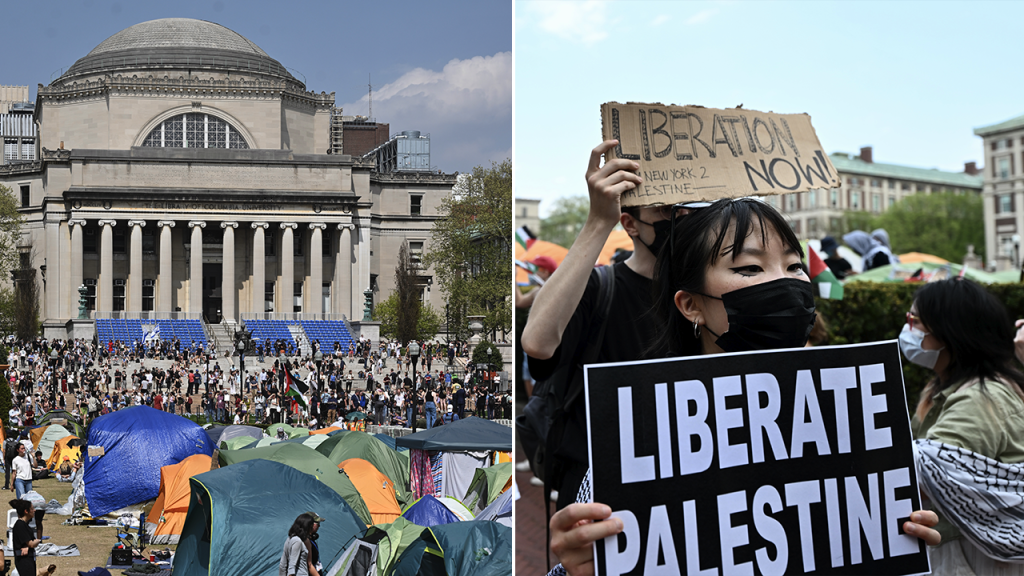Columbia University in New York City has allowed an anti-Israel encampment to form on its campus, with around 25 to 60 people in seven tents as of Saturday. Police had to be called in last month to clear out a different group of agitators that had taken over a building on campus. The school stated that the encampment violates university rules, and four unoccupied tents were removed by campus safety. Access to the campus is currently restricted to Columbia University affiliates with a valid ID. Despite the encampment, the school expressed hope for resuming classes on Monday and continuing education and research activities throughout the summer.
The anti-Israel encampment formed at Columbia University is part of a larger trend of escalating anti-Israeli demonstrations at U.S. universities in response to recent conflict between Hamas and Israel. This has led to protests, paired with incidents of antisemitism that have made Jewish students feel unsafe. At Columbia University, tensions have been growing, with protests led to over 100 arrests and the college switching to hybrid or virtual learning to close out the semester due to safety concerns. Columbia’s President Minouche Shafik addressed these concerns in a statement, denouncing antisemitic language as unacceptable and encouraging students to report any threats. The university was previously given a “D” grade for its response to campus antisemitism from the Anti-Defamation League in January.
The recent anti-Israel encampment at Columbia University is not the first instance of tension on campus regarding the Israel-Palestine conflict. In April, a pro-Palestinian encampment caused fear and escalating tensions among students, leading to the school making the switch to hybrid or virtual learning for safety reasons. The protests at Columbia reveal a larger issue of escalating antisemitism in the United States, with many Jewish students feeling unsafe on campus. The recent encampment is seen as a continuation of these tensions, with faculty attempting to initiate discussions with student leaders to establish dialogue.
Columbia University has faced criticism for its response to campus antisemitism, with the school previously receiving a “D” grade from the Anti-Defamation League in January. The recent encampment is seen as a continuation of a pattern of anti-Israel protests and incidents of antisemitism on campus, leading to safety concerns for Jewish students and prompting increased security measures. The university’s response to these incidents, including the recent encampment, have been closely monitored by various organizations, with pressure mounting for the school to take more concrete action to address antisemitism and ensure the safety of all students on campus.
The presence of the anti-Israel encampment at Columbia University has caused tensions to flare on campus, with many students expressing concern about their safety and well-being. The university has been working to address these concerns, with Columbia’s President denouncing antisemitic language as unacceptable and encouraging students to report any threats. Despite the recent protests and incidents, the school remains committed to resuming classes and continuing education and research activities throughout the summer. It is hoped that through dialogue and communication between faculty and student leaders, a resolution can be reached to address the root causes of the tensions on campus and create a safer environment for all students.


